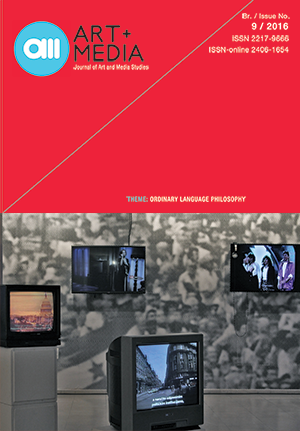The Influence of Wittgenstein’s Philosophy of Language on the Textual Production of the Vienna Group
The Influence of Wittgenstein’s Philosophy of Language on the Textual Production of the Vienna Group
Author(s): Luka BešlagićSubject(s): Analytic Philosophy, Theory of Literature
Published by: Fakultet za medije i komunikacije - Univerzitet Singidunum
Keywords: Ludwig Wittgenstein; philosophy of language; critique of language (Sprachkritik); linguistic turn; Vienna Group (Wiener Gruppe); textual production
Summary/Abstract: The entirety of Wittgenstein’s problematization of language was of particular importance for numerous Austrian postwar artists and art movements, but was possibly most evident in the poetics and heterogeneous practices of the Vienna Group. Analysis of selected texts of the latter neo-avantgarde movement – namely, Konrad Bayer’s the philosopher’s stone1 (1963) and Oswald Wiener’s the improvement of central europe, novel (1969) – unveils the direct influence of both of the early and late Wittgenstein, paradigmatically represented by his two major books: Tractatus Logico-Philosophicus (1921) and Philosophical Investigations (1953). Texts of the Vienna Group to which this article refers to are not interpreted as literary works, but rather as diverse examples of textual production; instead of being analyzed as aesthetic objects, these texts are examined as platforms of potential inscription of Wittgensteinian critique of language.
Journal: AM Časopis za studije umetnosti i medija
- Issue Year: 2016
- Issue No: 09
- Page Range: 55-64
- Page Count: 10
- Language: English

